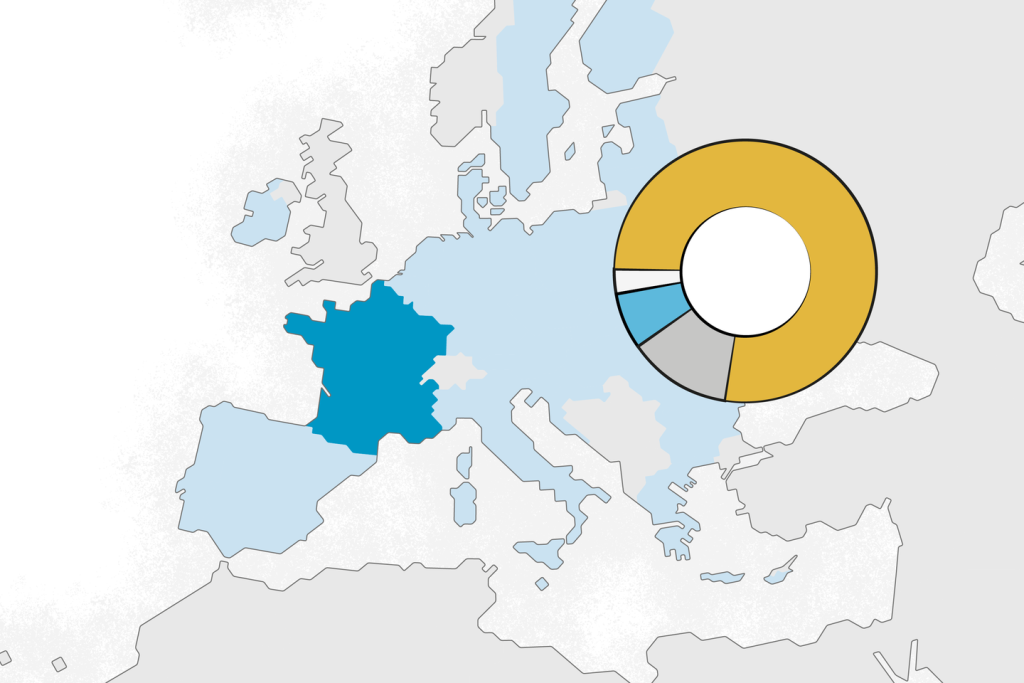The Erosion of Trust in French Political Institutions
The French political landscape has undergone a significant transformation since 2024, marked by a sharp decline in public trust in political leaders and institutions. This distrust is particularly pronounced when compared to neighboring European countries like Germany and Italy. While 38% of Germans and 35% of Italians express confidence in their respective governments, only 23% of French respondents trust their government. This disparity is even more striking when looking at individual leaders: 27% of the French population trusts François Bayrou, whereas 43% of Italians trust Georgia Meloni and 53% of Germans trust Olaf Scholz. These numbers reveal a deep-seated dissatisfaction with the political class in France, exacerbated by the dissolution of the National Assembly and the ensuing political instability. The crisis has gone beyond mere distrust, raising fundamental questions about the relevance and effectiveness of political activity itself.
A Nation Disillusioned: The Decline of Democratic Satisfaction
The French people are increasingly disenchanted with the state of their democracy. While attachment to the democratic principle remains strong, its current implementation has left many feeling disappointed and disheartened. A significant portion of the population views political leaders with suspicion, if not outright shame. The dissolution of the National Assembly and the chaos that followed have further alienated citizens from their political representatives. The National Assembly, once seen as a cornerstone of democratic governance, now commands the trust of only 24% of the population. This erosion of faith is compounded by a growing sense that democracy, as practiced in France, is not delivering on its promises.
The Rise of Anti-Democratic Sentiments: A Dangerous Trend
The disillusionment with France’s political system has led to a troubling rise in anti-democratic sentiments. A significant proportion of the population—48%—now believes that democracy is inefficient and that greater emphasis should be placed on efficiency, even if it means reducing democratic oversight. This represents a stark shift in public opinion, with support for this idea increasing steadily in recent years. Even more concerning is the growing acceptance of authoritarian alternatives: 41% of respondents expressed support for a "strong man who does not need elections or parliament," a level of support not seen since 2017. These numbers underscore a worrying trend toward authoritarianism and a diminution of faith in democratic institutions.
France’s Democratic Crisis in a European Context
While France grapples with its democratic crisis, other European nations like Germany and Italy appear to be faring better. In Germany, 51% of the population believes that democracy is functioning well, compared to just 28% in France. Similarly, while 52% of French citizens feel that they cannot be proud of their democratic system, this figure stands at 42% in Italy and 33% in Germany. These comparisons highlight the unique challenges facing France, where the democratic system is perceived as ineffective and out of touch with the needs of its citizens. The French people’s disillusionment with their political leaders and institutions stands in stark contrast to the relatively higher levels of satisfaction observed in neighboring countries.
The Consequences of Political Dysfunction: A Call for Change
The dysfunction in France’s political system has far-reaching consequences, extending beyond mere public dissatisfaction. The inability of the National Assembly to pass a meaningful budget that addresses the country’s financial struggles has further eroded public confidence. The perception that political debates and behind-the-scenes maneuvering are prioritized over tangible results has led to widespread frustration. Many citizens are now questioning the usefulness of political activity altogether, a sentiment that threatens the very foundations of democratic governance. The current state of French politics has created a sense of urgency, with many calling for systemic reforms to restore faith in the political process.
The Future of French Democracy: Challenges and Implications
The future of French democracy hangs in the balance as the nation struggles to address its deepening political crisis. The erosion of trust in political institutions, the rise of anti-democratic sentiments, and the growing disillusionment with the democratic system all pose significant challenges. To restore faith in democracy, French leaders must prioritize transparency, accountability, and effectiveness. The country must also confront the societal conditions that have given rise to authoritarian tendencies, such as economic inequality and political disengagement. If left unaddressed, these issues could have far-reaching implications, not only for France but also for the broader European project. The coming years will be pivotal in determining whether France can reclaim its democratic values and rebuild its political institutions in a way that resonates with its citizens.












